Not Tonight 2 is the latest release from Not Robot Games. While the original Not Tonight tackled Brexit, this game changes its setting from the UK to the United States. Specifically, the date is December 31, 2020. Eduardo and his friends Kevin, Malik, and Mari are all together for a protest. Suddenly, Eduardo is taken by and brought down to a gulag in Miami. The authorities that took him are known as the Martyrs, a fascist group that has a stronghold on the country. They tell Eduardo and his friends that they have 30 days to prove he’s a citizen or else he’ll be deported.
In a country divided
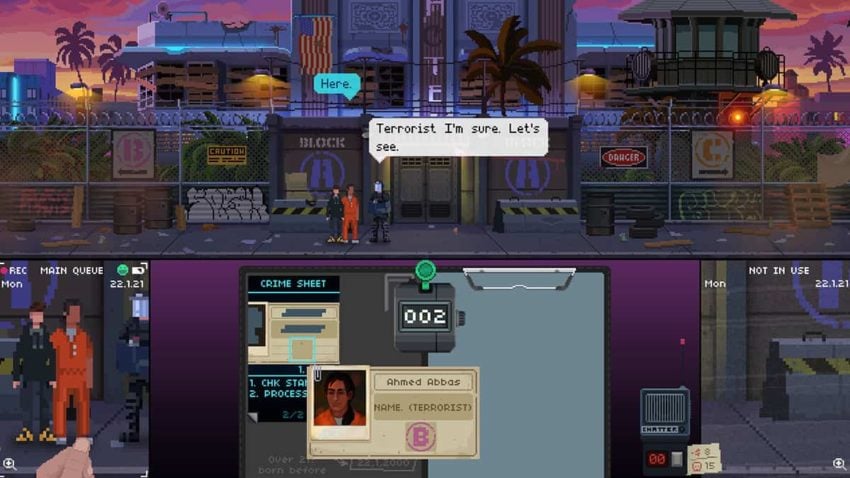
The game is separated into three acts, each act focusing on one of Eduardo’s friends: Kevin, Malik, and Mari, as they travel across a broken nation, which is suitably named United States of America, to get all of his documents. You can expect this game to take on many political issues, such as immigration, deportation, and racism. Although many gamers encourage developers to stay away from politics, I’m very happy No More Robots didn’t listen to these people. When Eduardo is being processed, you play as a Martyr member, checking in new criminals or as they label them, terrorists. They’ll hand you a card that tells you their crime. Small things like protesting, their name, and even being sarcastic have landed them into this labor camp. No one is allowed to be themselves. Freedom is something this version of America has long forgotten.
Another moment that stuck out to me was during Act 2 when I took control of Malik, a black character. He’s driving down to San Francisco before he’s stopped by a cop. Fearing for his life, Malik carefully narrates to the cop what he’s doing, saying that he’s reaching for his ID. We don’t see this happen with Kevin, who has a lighter skin tone. Thankfully, Malik is able to drive off, but only after giving the cop most of his money. Although this is just a video game and I knew Malik would end up being all right since he texts Kevin throughout Act 1, I couldn’t help but be afraid for him.
The game isn’t always serious, however. There are some lighter bits that often poke fun at the ridiculous state America is in. For example, when you visit Montana, which is oddly a part of Canada now, you can read a piece of Canadian news. The article talks about how great life is in the country, bringing up free health and that everyone gets free poutine. It’s a stark contrast to the US where the country is falling apart and you’re essentially doom scrolling through the newsfeed on your character’s phone.
Challenging gameplay
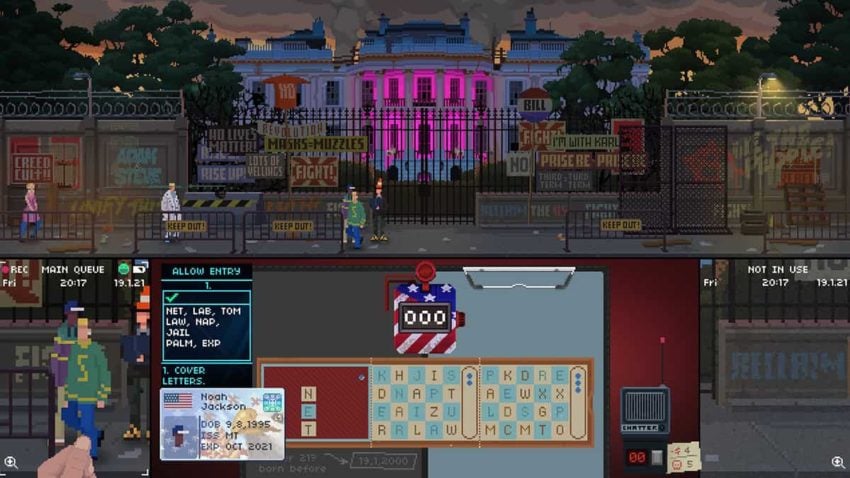
In order to make money in the game, you pick up a job as a bouncer, checking peoples’ IDs and determining if they can be allowed into the building. You have to let in a certain amount of people in order to pass the night. After that, any extra patron allowed into the building earns you more money. So, you’ll want to be as fast as possible processing people to earn enough cash to get to the next city. The gameplay is very similar to Papers, Please in this regard. In that game, you took control of a border agent, who was tasked with either allowing or denying people entry into the fictional Grestin based on specific criteria.
At first, it starts off incredibly easy, as you will only need to make sure the person is 21 or older. The criteria quickly ramp up to not only checking their date of birth but also their ID’s expiration date. Eventually, you’ll have to check their receipts to if they spent a total of $10 at a fast-food restaurant or do a word puzzle to see if they are allowed entry. Not to mention that you’ll also need to carefully pay close attention to the person in front of you and your surroundings. Is that person wearing a mask? Does their face match with their photo ID? In the satirical New Camelot, are there wizards trying to sneak into the castle via balloon in a knight-exclusive bar?
While I didn’t mind the increased complexity, your area quickly becomes cluttered with all the new papers you need to check. Important reference material, like your rulebook which you need to refer to from time to time, gets buried under everything else. Sometimes, you’ll find yourself trying to reorganize when you can spend that time checking IDs and getting more people into the building. I wish there was some way to put away excess objects like the walkie-talkie, which never served a purpose outside of your client telling you if you made a mistake.
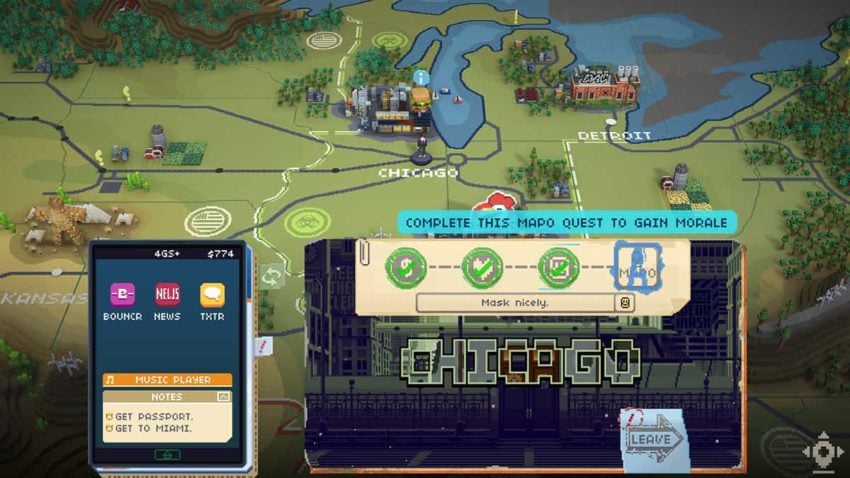
As you travel, you will have to mind your stats. You have three stats in the game: health, money, and morale. Health obviously represents your character’s well-being. If it reaches zero, it’s game over. Money is needed to travel to your next destination. Lastly, morale impacts your decision-making. The higher morale you have, the more time you have to make a choice during a timed section. Keeping all three of these stats high is crucial. Thankfully, a secret group called MapO is here to help you with that. At every location you visit, you’ll be assigned three missions. Before you leave for your next destination, if you completed any of those missions, you will be awarded either health, money, or morale.
Completing all three missions gives you a MapO grade of A. MapO A grades can be used to purchase home security items. Although it isn’t said what purpose these security items serve, I can assume it plays a bigger role later on. I found these missions easy to complete since the game does give you clear hints on what you need to do. For example, when in Montana, there is a mission called Pou-Teen. A teen comes up to you on the first day asking you to let him into the building so he can have some of the poutine. From here, I was able to deduce that in order to complete the mission, I had to let the kid in even though that could hurt my pay. Thanks to the helpful hints the game gave, I managed to only fail two missions out of the entirety of act one, which spanned a little over two hours.
Decisions, decisions
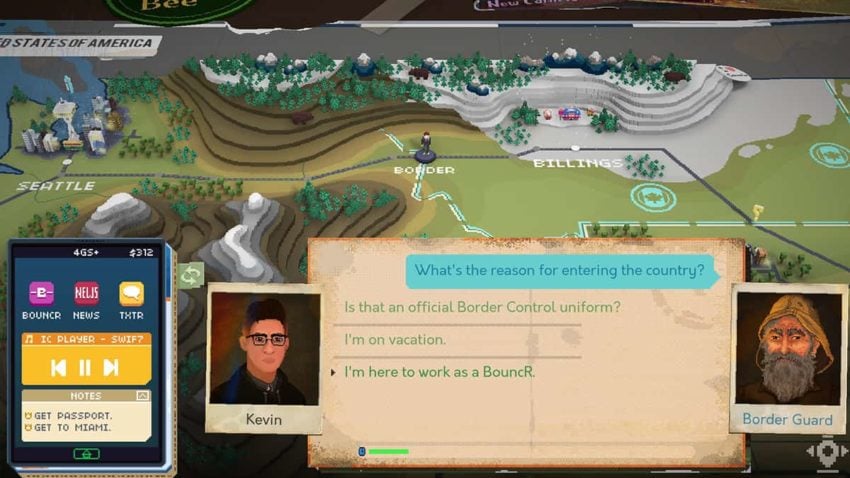
A big part of Not Tonight 2 is making choices. These choices can appear as either timed choices during dialogue with characters or letting someone into the business you’re bouncing that night. Although the choices I made in Act 1 didn’t impact Kevin’s journey in any noticeable way, it was in the later acts when that I finally got to see how my decisions impacted the story, even if the changes to the overall narrative were small.
When it came to letting people in or not, most of the time I allowed them in. Obviously, my pay got deducted but it was by a small amount. Plus, letting them in either completed a MapO mission or gave me an item or information that I needed later. My client, although a bit mad I would let someone like that in, forgot about it the next day. There weren’t enough risks to making these choices, which didn’t make sense in the police state that the game depicts.
Is Not Tonight 2 worth playing?
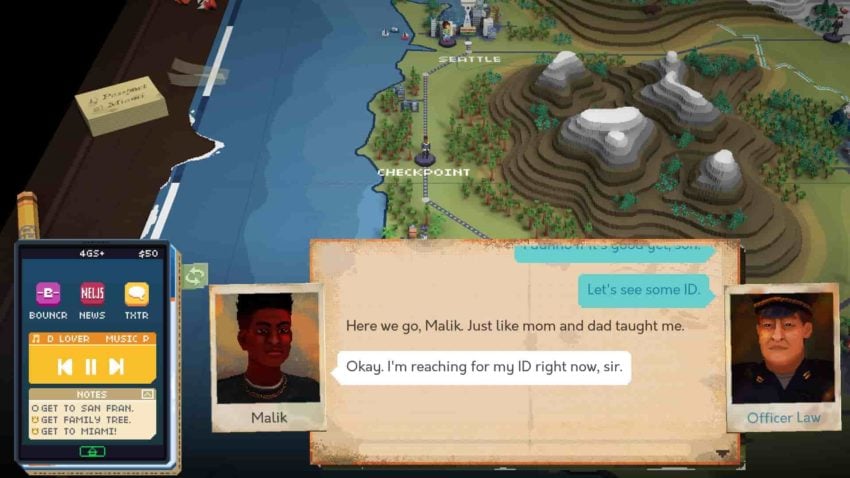
Overall, Not Tonight 2 is a great game with some issues. The UI getting cluttered as the difficulty ramps up and my choices not having a longer-lasting impact on the game did bug me. However, the story overshadowed these small issues for me. I think anyone who was a fan of Papers, Please will find themselves right at home with this. By allowing the player to play as Eduardo’s friends, they’re then able to get into the shoes of these characters and learn their day-to-day struggles as well as the hardship of trying to prove they belong in a frequently hostile and racist country. Even with its exaggerated tone, this game shines a light on racist and inhumane systems in the current USA.

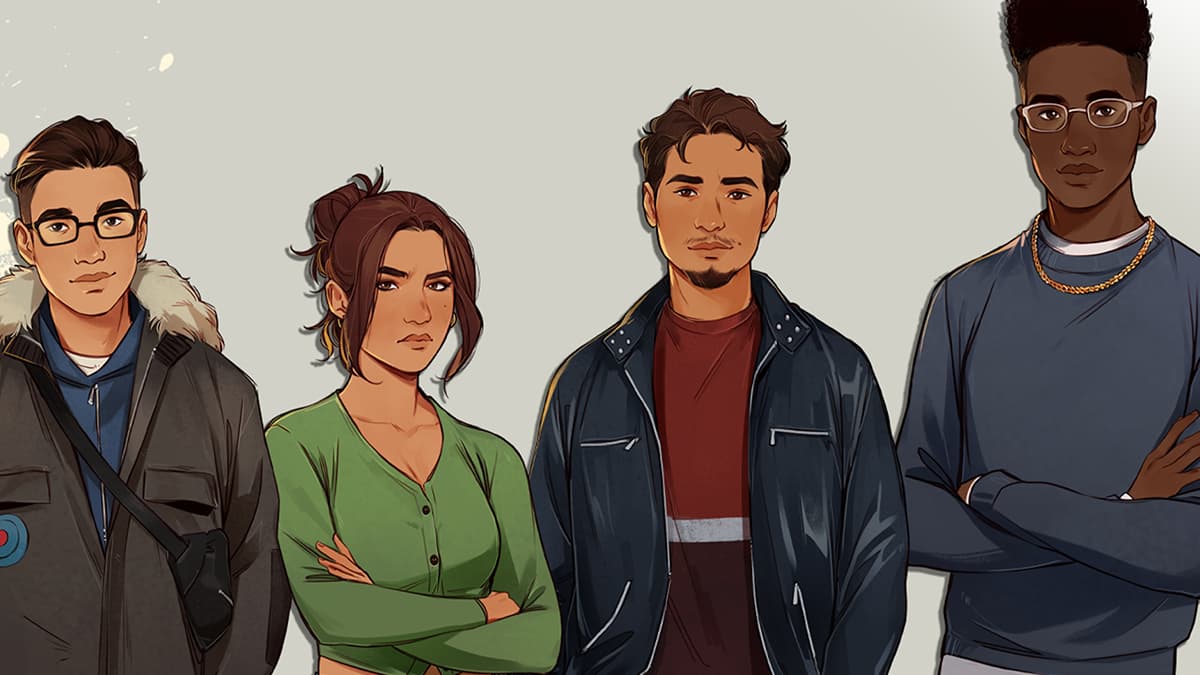
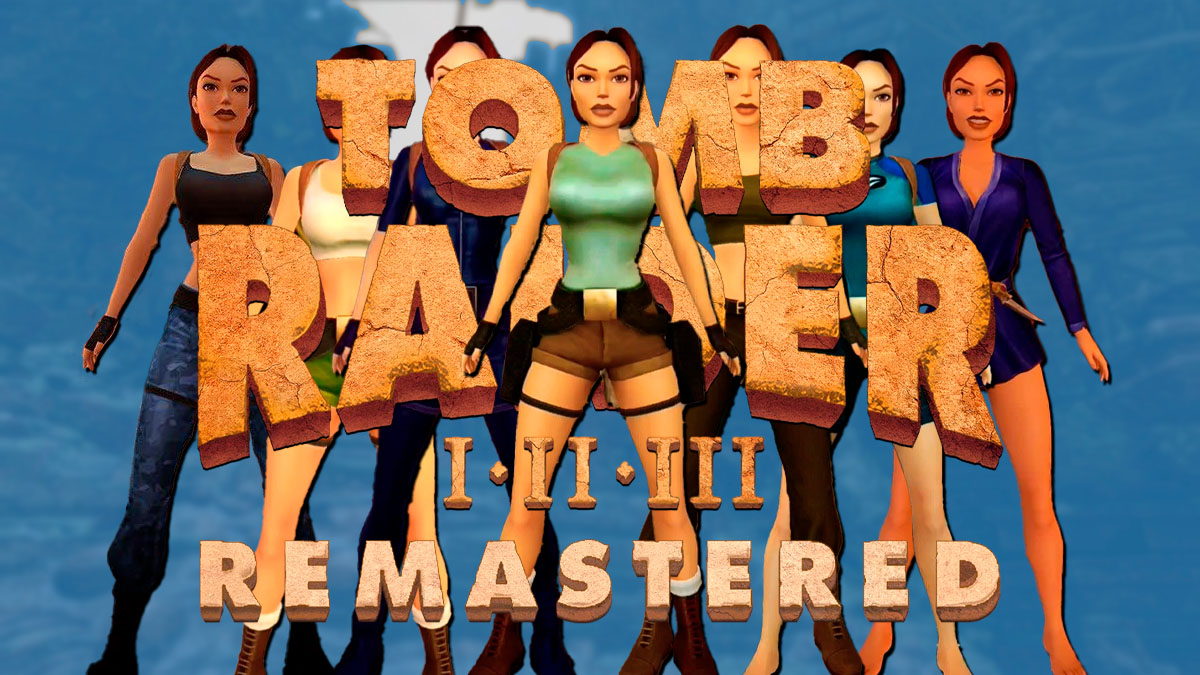
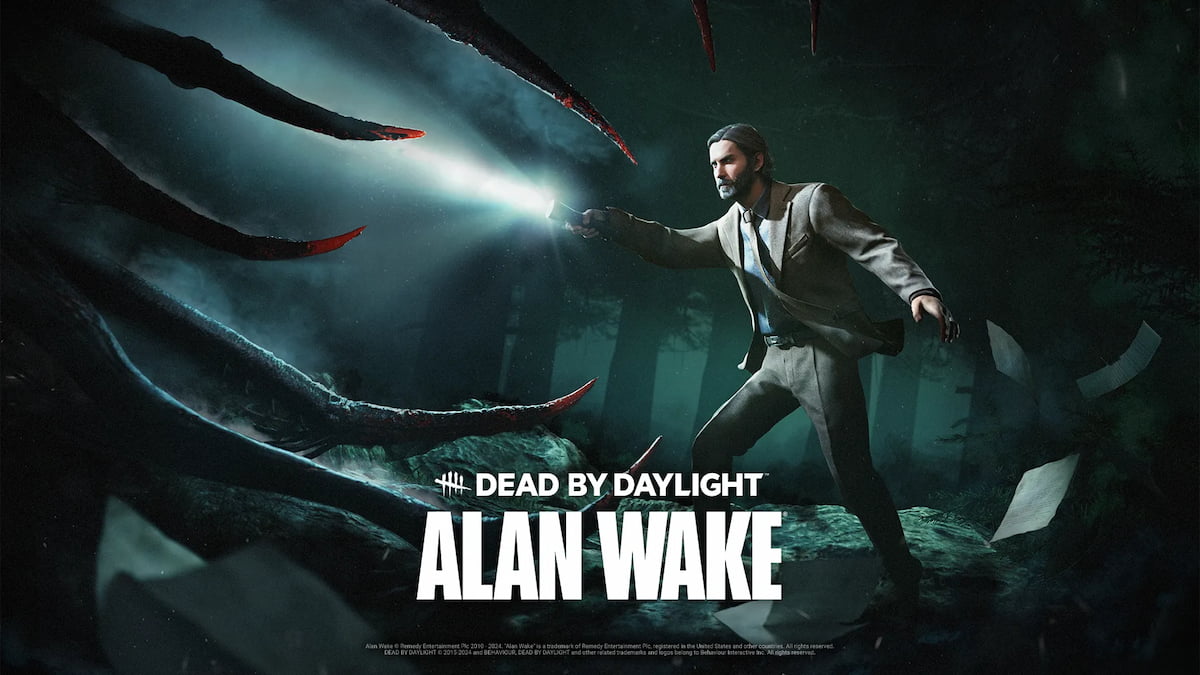
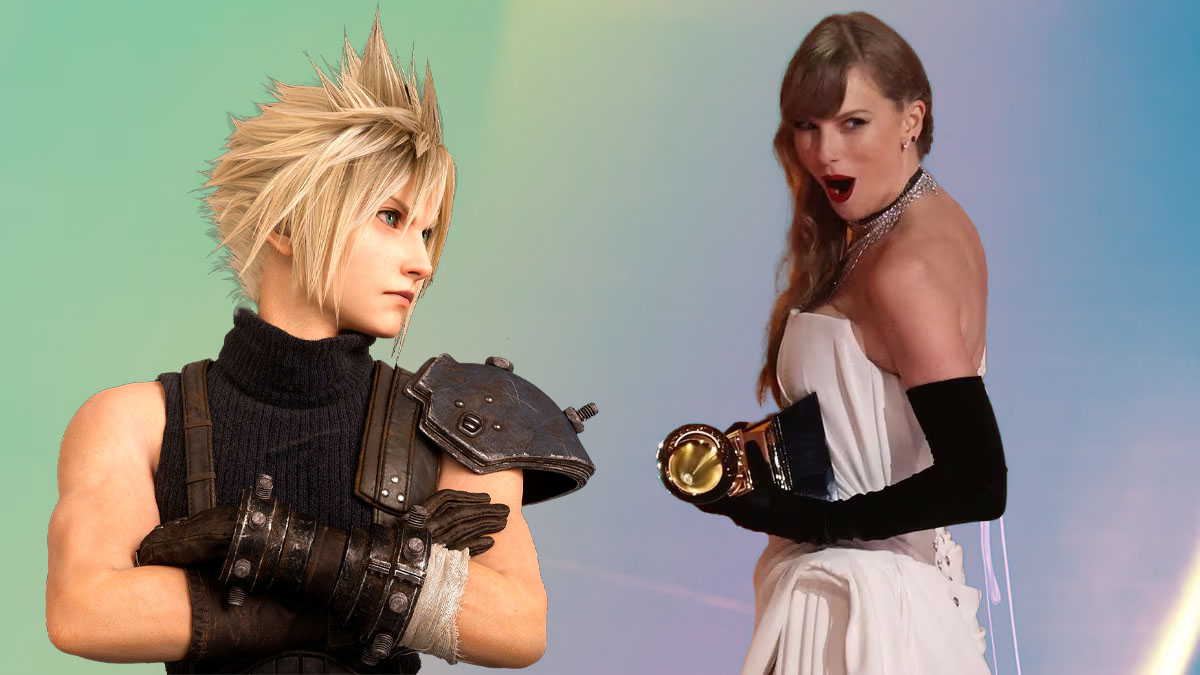

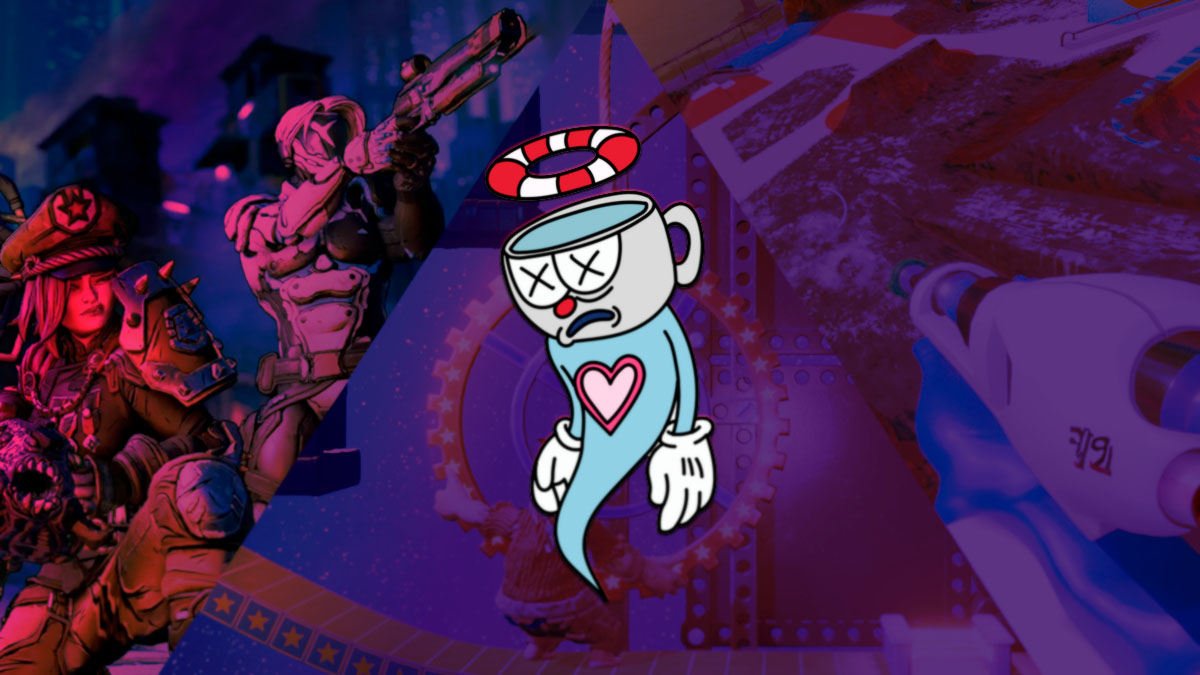
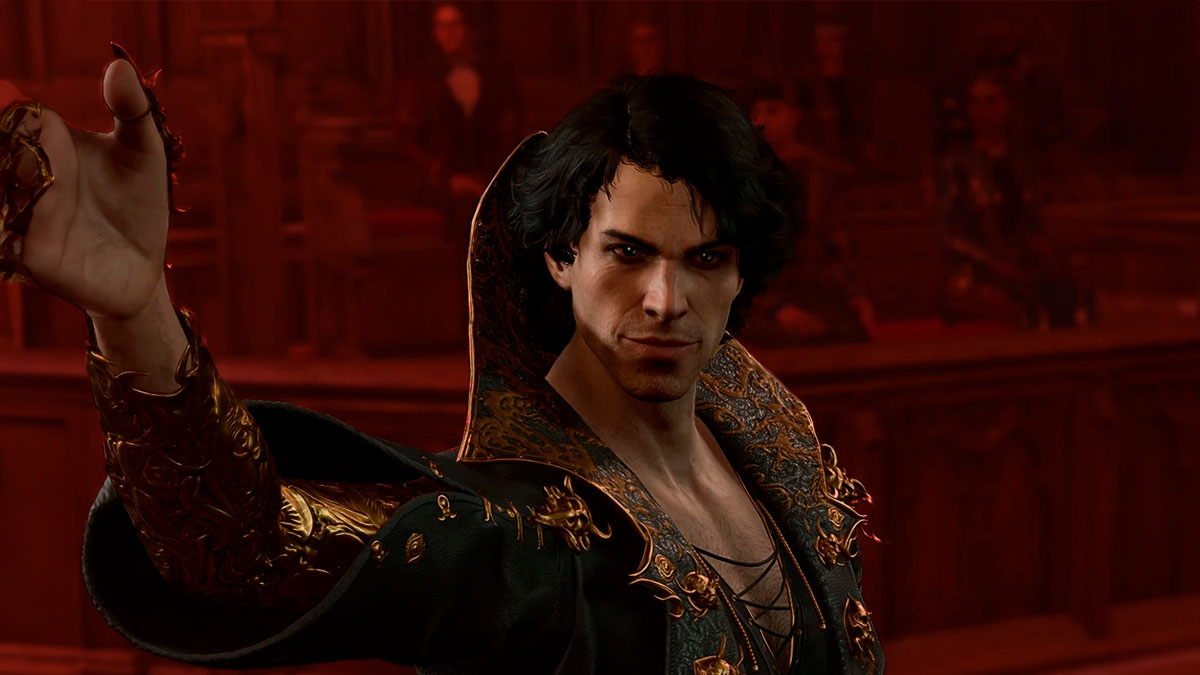
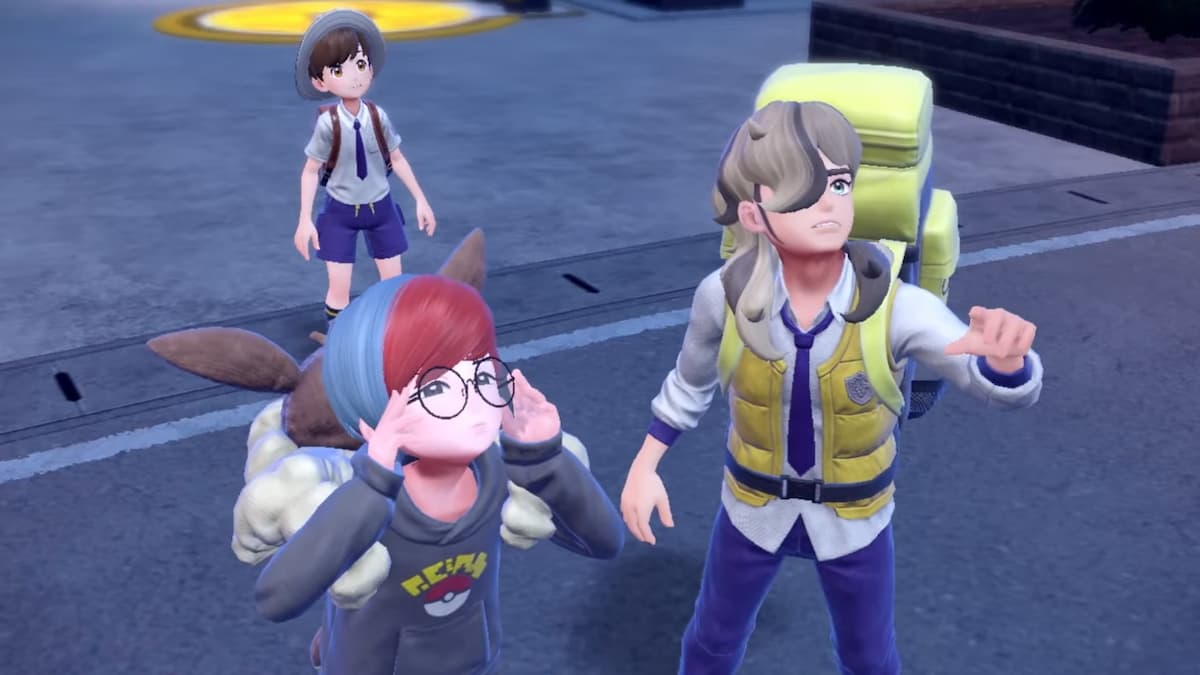
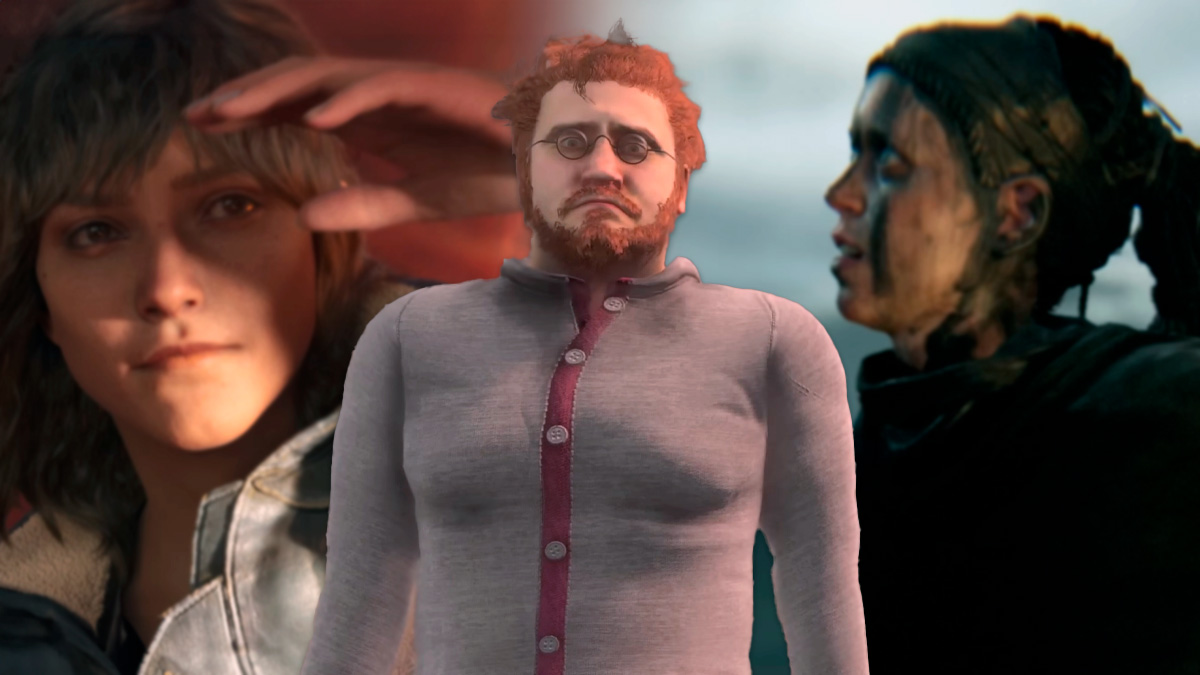
Published: Feb 11, 2022 10:00 am